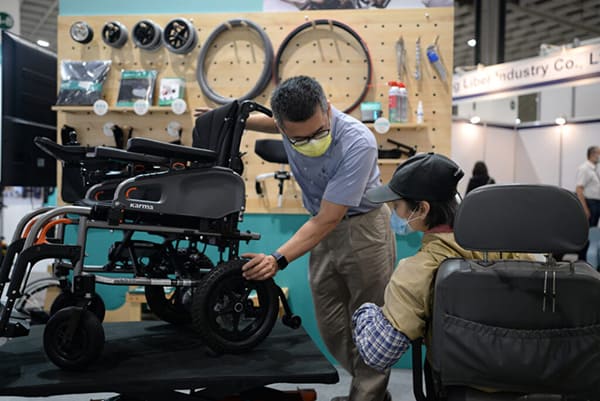An Occupational Therapist (OT) is a healthcare professional who carries out assessments and intervenes to develop, recover, and maintain daily activities. Occupational therapists take a “holistic approach” to include both the mental and physical wellness of the patient to enable that person to reach their full potential.
Occupational therapists provide practical support and solutions to facilitate recovery and overcome barriers that prevent them from pursuing activities (or occupations). This gives people a sense of identity and independence to carry out daily tasks around self-care, work, or play. Occupational Therapists work with both adults and children of all ages with a wide range of conditions; most commonly people with mental, physical, or learning difficulties. They also work in a variety of settings including health organizations, social care services, education, volunteer organizations, or as independent professionals.
What does an Occupational Therapist do?
The role of an Occupational Therapist is to help people of all ages overcome the effects of disability caused by illness, aging, or accidents, so they can perform everyday tasks or occupations. The job of Occupational Therapists is to consider all the needs of the patient; physical, psychological, social, and environmental. This support can make a real difference by giving people a renewed sense of purpose and changing the way they feel about the future. An OT’s skills lend themselves to new emerging roles such as working with asylum seekers and refugees, working alongside police or firefighters, or liaising with psychiatric services.

The areas of Occupational Therapist work
Children and youth
Occupational therapy can help babies, infants, children to grow, learn, have fun, socialize, and play, so they can develop, thrive, and reach their full potential. Occupational therapy allows people to participate in daily life to improve their health and well-being. The daily life or children can include taking care of themselves (getting ready to go out, eating, or using the bathroom), being productive (getting to day care or school, or volunteering), and leisure (playing with friends, and doing hobbies).
People with physical disabilities
Occupational therapy can help people with a physical disability, including amputees, to perform daily activities and do their hobbies. The main focus of Occupational Therapists working with people with disabilities;
- Enabling patients to functional at optimal level and overcome any challenges.
- How activities the patient needs or wants to do can be modified or adapted to suit them.
- How patients feel about themselves and their ability to tackle obstacles.
- How physical or social environments can be altered to reduce restrictions.
People with learning disabilities
Occupational Therapists support people with all kinds of learning disabilities to help them continue building their skills for life, work, and leisure activities as independently as possible. The main focus of Occupational Therapists working with people with learning disabilities;
- Work with individual, families, and support workers, so they understand the importance of participating in daily activities.
- Help people with learning disabilities to participate in activities at home, such as cooking.
- Help people live independently.
- Encourage the use of public transportation, so people with learning disabilities can access community facilities.
- Support people to join volunteer work or employment.
- Support people to develop their parenting skills.
People with mental health difficulties
Occupational Therapists help people develop a personally satisfying routine of daily activities that creates a sense of purpose and enhances a person’s recovery journey. The main focus of Occupational Therapists working with people with mental health difficulties;
- Help people improve their self-care, for example by supporting them to learn how to use washing machines or how to cook for themselves.
- Help people manage their money by learning about budgeting and banking.
- Support people to live independently by providing systems to help deal with, for example, mail and bills or dealing with neighbors.
- Work with people to identify and improve job skills, apply for jobs, and stay in employment.
- Help people access and use regular leisure activities.
- Provide advice on how much assistance a person may need to live independently long-term.
Elderly people
Occupational Therapists can help older people continue to do daily activities that maintain their health and well-being and are important to them. An Occupational Therapist can support social opportunities:
- Understanding the difficulties and working with the older person to find ways to have more social contact.
- Develop strategies to increase a person’s confidence when meeting other people.
- Recommending equipment, such as a walking aid, so that the person feels safe when they go out.

 Global
Global